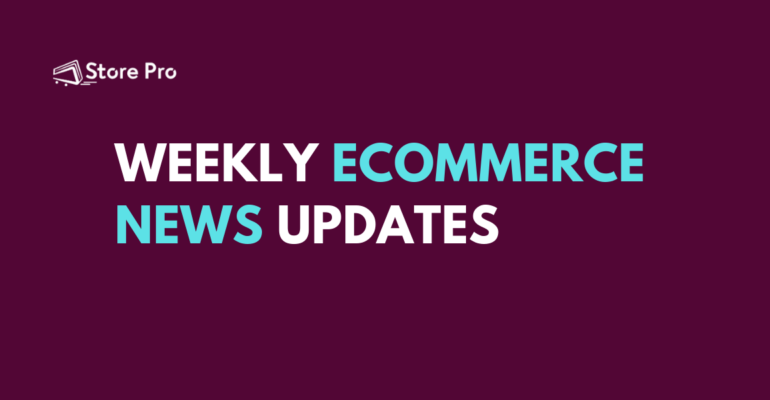This Week in eCommerce – News at a Glance
This Week in eCommerce – News at a Glance

What’s happening in the eCommerce world?
We bring you the latest eCommerce news of the week.
Small eCommerce Services Thrive While Amazon Struggles with Delivery Delays and Supply Shortage
As Amazon was forced to loosen its free and fast delivery and the supply of non-essential goods during the coronavirus pandemic, shoppers scramble online to find goods online and smaller ecommerce websites see a boom in orders.
Amazon has been flooded with orders for essential and non-essential products soon after the pandemic outbreak.
The overwhelming surge in demand and bottlenecks at warehouses and supply chain networks due to the pandemic at Amazon resulted in order processing and delivery delays.
In addition, Amazon prioritised the shipments of essential, medical, and household items and put quantity restrictions for non-essential items.
The shipping delays and inventory shortages at Amazon forced shoppers to look further to meet their needs. As a result, many smaller online stores and traditional stores accepting online orders have seen a big spike in orders.
Bookshop.org, an online marketplace platform started in January 2020 to enable independent booksellers to set up online storefronts, reported a significant growth in orders since the COVID-19 outbreak.
Andy Hunter, CEO of Bookshop.org, said that his business has already achieved what he had expected to achieve by Christmas. By the early weeks of May (within 3 months of the launch), Bookshop started selling 10,000 books a day capturing 1% of Amazon’s book market in the US without spending a single dollar on the advertisement.
Similarly, two local grocery delivery services in New York City, Go Organic and Farm to People, reported an unexpected spike in orders.
Farm to People co-founder Michael Robinov said their company was planning to expand their facilities by 350% to keep up the demand. Go Organic reported that, in the first three weeks of the crisis, it took on hundreds of new customers which is a good number for a local grocery delivery service.
Likewise, many traditional retailers and smaller ecommerce services like Best Buy, Target, Wayfair, and Overstock.com have seen a spike in revenue while Amazon was overwhelmed by the spike in orders and delivery bottlenecks.
As eCommerce Prospers during COVID-19 Pandemic, Shopify Stock Price Shoots up
The stock price of Shopify has increased by 51.7% in April as the COVID-19 outbreak has driven the increased use of ecommerce services due to the store shut down and social distancing.
Jean-Michel Lemieux, CTO of Shopify, stated that the company has seen a dramatic surge in traffic and daily engagement in line with stats of Black Friday.
The pandemic forces consumers to stay indoors and rely on online shopping to get essential as well as non-essential goods. eCommerce had been growing significantly over the past few years, but the ongoing lockdown accelerated the growth tremendously. It provides a positive advantage for online retailers and eCommerce service providers.
WSJ Investigation Found Amazon Uses Data from Its Independent Third-party Sellers to Launch Its Own Private-labeled Products
An investigative story on the Wall Street Journal (WSJ) claims that Amazon uses data from third-party sellers on its platform to discover best-selling products that Amazon may want to develop and launch as Amazon private-label products.
The findings contradict with Amazon’s assertion, including to Congress, that Amazon doesn’t use data from third-party sellers to make and sell its own products.
If Amazon actually uses data from third-party sellers on the platform to make its own products, it gives Amazon an unfair advantage over the independent sellers and it hurts third-party sellers by using their own sales data against them.
Responding to the WSJ article, an Amazon spokesperson commented that Amazon restricts its employees from using third-party seller data to determine which products to launch as private-label goods.
However, WSJ asserts that some Amazon executives have found a way around Amazon’s self-imposed restriction to employees regarding the use of sales data of independent sellers on Amazon.




 Shares
Shares